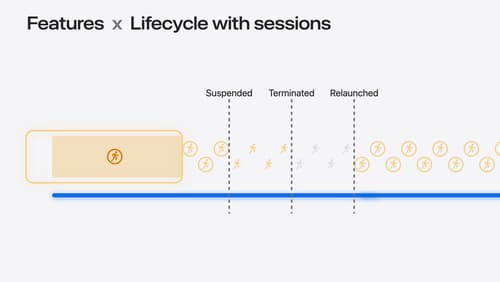What is new in CoreLocation
Asked on 2024-08-04
1 search
At WWDC 2024, Apple introduced several new features and improvements for CoreLocation, particularly focusing on location authorization. Here are the key updates:
-
CL Service Session:
- A new declarative way to manage location authorization goals for different features of your app.
- Allows you to specify what kind of location access each feature needs while it is running.
- Helps in reducing the complexity of authorization code in Swift.
-
Implicit Service Sessions:
- CoreLocation can now treat the act of iterating live updates or monitor events as implicitly holding a CL service session.
- This means you may be able to update your app to handle CoreLocation authorization with service sessions just by deleting code.
- If you don't want API use to implicitly motivate authorization requests, you can disable this behavior by setting the
NSLocationRequireExplicitServiceSessionkey in your app's Info.plist.
-
Diagnostic Properties:
- New system of diagnostic properties to give your app a complete contextual understanding of its current authorization and the function of any other CoreLocation API objects.
- These properties help in understanding why updates or events might not be yielded, reducing the need for timeouts and guesswork.
-
Authorization Goals:
- Moving from a procedural model to a declarative one for interacting with location authorization.
- Simplifies the process of requesting location authorization and managing different states like "not determined," "when in use," and "denied."
-
Session Lifecycle:
- CL service sessions are aligned with user-facing features and interact with the app's lifecycle.
- Features can be short-lived (e.g., geotagging a photo) or longer (e.g., browsing a MapKit view), and sessions can overlap as needed.
For more detailed information, you can watch the session "What’s new in location authorization" from WWDC 2024.

